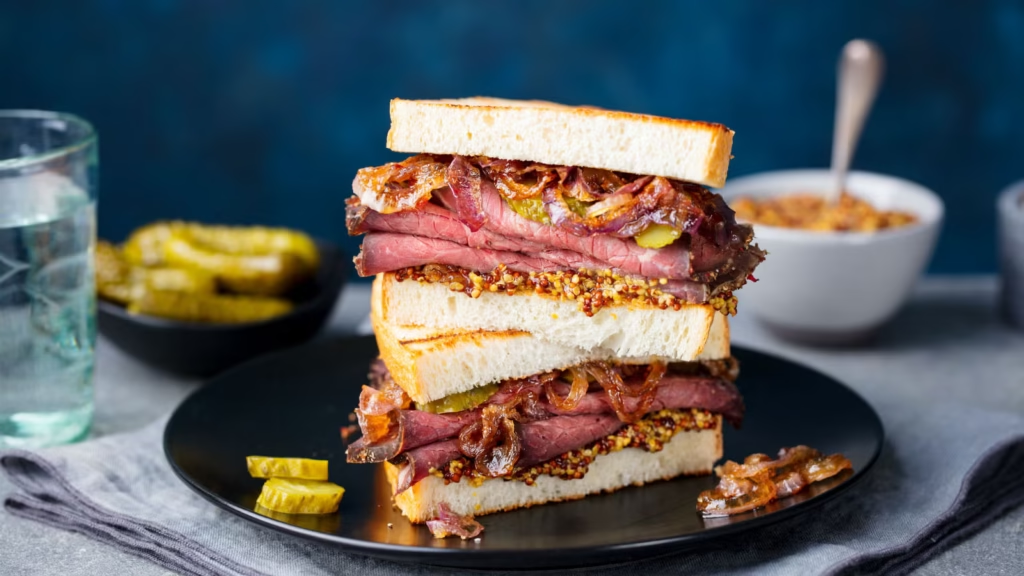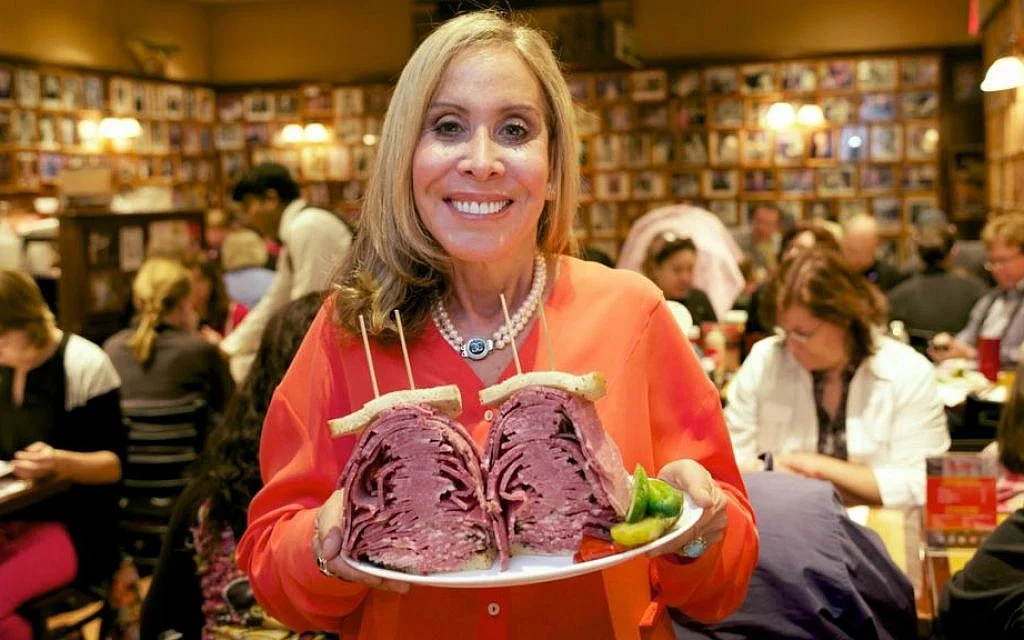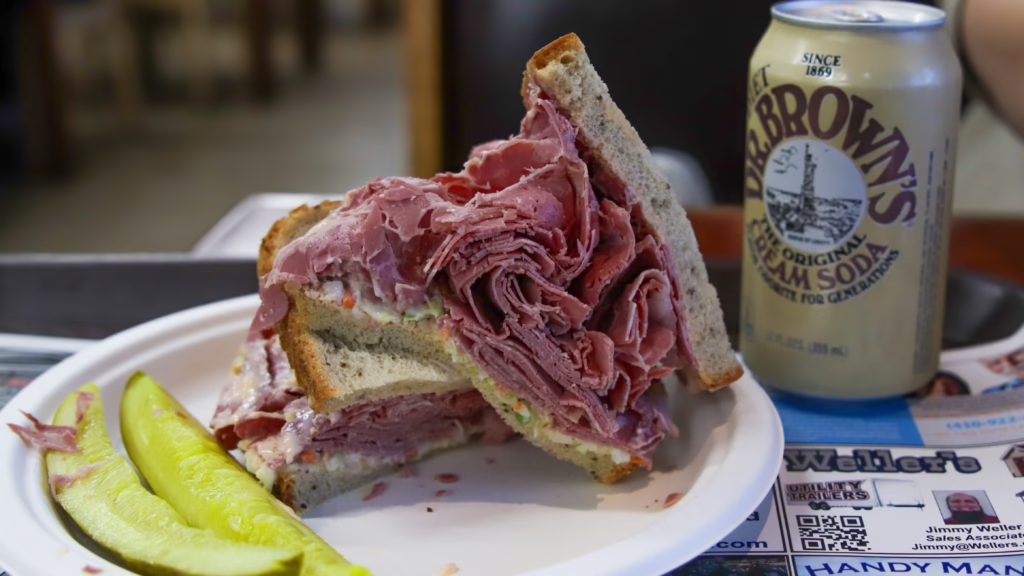In the warm, bustling space of a Jewish deli, you’ll find more than just food—you’ll find history, identity, and tradition served up with a side of nostalgia. From pastrami on rye to matzo ball soup, Jewish delis have not only fed generations of Americans but also shaped the very definition of comfort food in the U.S.
What began as humble storefronts created by Eastern European immigrants has grown into an iconic part of American culinary and cultural life. The Jewish deli is more than a place to eat; it’s a celebration of survival, family, and flavor that continues to evolve without losing its old-world soul.
How Jewish Delis Became America’s Most Beloved Food Icons
A Journey from the Old World to the New
The story of Jewish delis in America begins in the late 19th and early 20th centuries, when a wave of Ashkenazi Jewish immigrants fled persecution and poverty in Eastern Europe. Arriving in cities like New York, Chicago, and Los Angeles, many brought with them a deep-rooted food culture centered around curing, pickling, and preserving.
These early immigrants recreated dishes from their homelands—brisket, knishes, chopped liver—but adapted them to local ingredients and tastes. Delis (short for delicatessens) quickly became neighborhood staples. They were places not only to buy kosher meats and breads but also to gather, talk, and feel a sense of home in a foreign land.

New York: The Deli Capital of America
Nowhere is the legacy of the Jewish deli more deeply rooted than in New York City. In its heyday, the city was home to over 1,500 Jewish delis, each with its own flavor and following. These spots became institutions, serving heaping sandwiches, pickles, and personality to a devoted clientele.
Famous delis like Katz’s Delicatessen, established in 1888 on the Lower East Side, are still going strong today. With its neon sign, paper ticket system, and legendary pastrami, Katz’s isn’t just a restaurant—it’s a rite of passage. Scenes from classic films and celebrities’ autographed photos cover its walls, making it a cultural as well as culinary landmark.
Another mainstay, 2nd Ave Deli, keeps kosher traditions alive while offering modern touches to appeal to today’s diners. These delis aren’t just preserving food—they’re preserving stories.
More Than Meat and Mustard: A Place for Culture
The Jewish deli has always been more than just a lunch spot. It’s a community center, a political hub, and a space where generations pass down heritage through recipes and conversation. Delis captured the rhythm of urban Jewish life—fast-paced, full of humor, sometimes chaotic, always warm.
The tables often hosted Talmudic debates over bagels or spirited discussions about politics between bites of corned beef. In this way, the deli became a public living room, open to all and filled with flavors of both food and memory.

Facing Change, Preserving Legacy
Like many traditional food institutions, Jewish delis faced decline in the late 20th century. Assimilation, changing dietary preferences, and the rise of chain restaurants contributed to a shrinking deli scene. Today, fewer than 200 traditional Jewish delis remain in the U.S., a dramatic drop from their peak.
But all is not lost. A new generation of deli owners and food entrepreneurs are reviving the tradition with passion and purpose. Places like Wise Sons in San Francisco and Mile End Deli in Brooklyn blend classic recipes with contemporary style, attracting younger crowds while honoring the roots.
This deli revival isn’t about trend-chasing—it’s about rediscovering soul food in the truest sense.

A Universal Appeal with a Personal Touch
One of the most remarkable things about Jewish delis is their ability to make everyone feel at home. You don’t have to be Jewish to appreciate a good pastrami sandwich or to understand the joy of sharing latkes with friends.
There’s a comfort in the deli experience—the clatter of plates, the friendly bickering over who gets the last pickle, the familiarity of flavors that feel like they’ve been passed down for generations.
And there’s personality. Deli staff aren’t just servers; they’re storytellers, characters, and caretakers of tradition. Every visit comes with a side of sass and a heap of heart.

Looking Ahead: The Future of the Jewish Deli
As more people seek meaningful, grounded experiences in food, Jewish delis are finding new relevance. The current interest in heritage cooking, slow food, and artisan methods aligns perfectly with the deli ethos.
With documentaries like Deli Man and renewed media attention, the deli is no longer just a relic—it’s a symbol of authenticity and endurance. Young chefs are experimenting with plant-based versions of traditional dishes, introducing deli culture to vegan and health-conscious diners without sacrificing tradition.
The Jewish deli has always adapted, survived, and thrived by staying true to its essence while embracing change.
Final Thoughts: More Than Just a Sandwich
The Jewish deli is an American treasure—a place where food, family, and history converge. It’s where salt meets soul, and every bite tells a story of resilience, creativity, and connection.
In a time when fast food and fleeting trends dominate, the enduring power of a Jewish deli lies in its heart. It’s food with meaning, wrapped in rye, seasoned with love, and best served with company.
So next time you step into a deli and take that first bite of a hot pastrami sandwich, know that you’re tasting a legacy that’s deeply woven into the American experience.
Also read : 7 TikTok Stars Who Achieved Unstoppable Success in Hollywood






